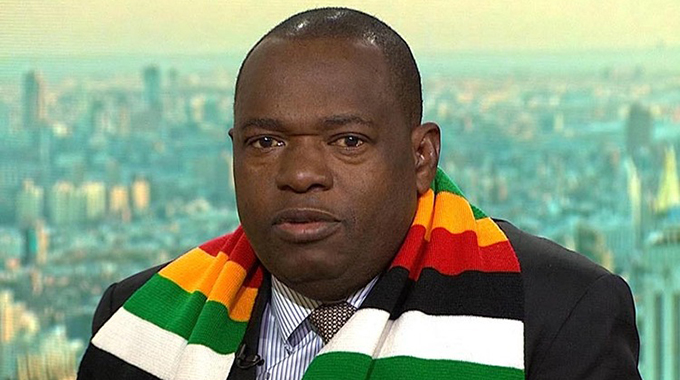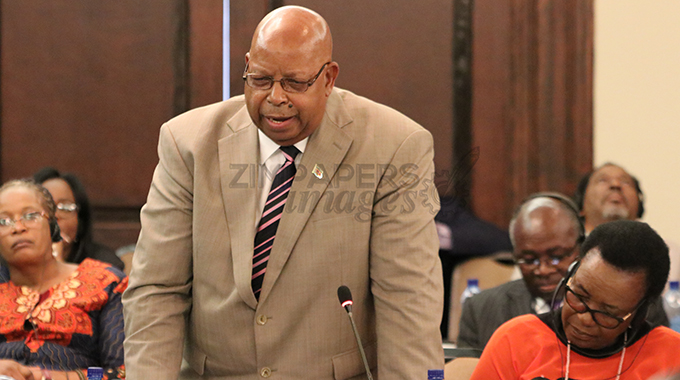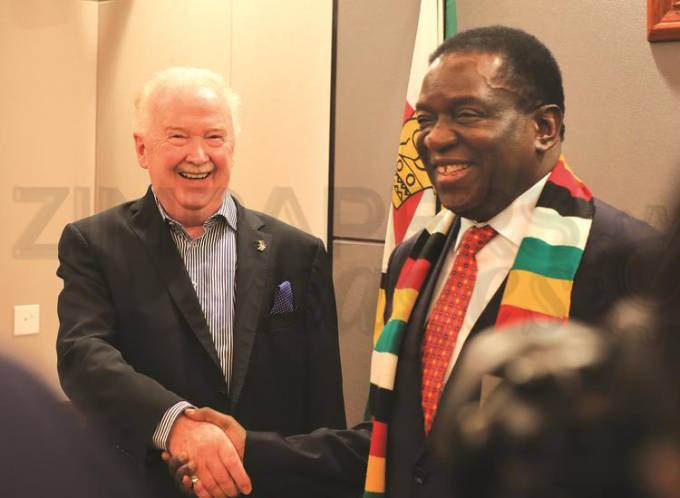More Zim officials removed from EU sanctions list

Fidelis Munyoro Chief Reporter
The European Union (EU) has removed top Government officials from its sanctions list and pledged support for economic and political reforms in Zimbabwe.
It said it wanted to move towards a “more constructive EU-Zimbabwe relationship”.
Those removed from the sanctions list include Vice President Constantino Chiwenga, Lands, Agriculture, Water and Rural Resettlement Minister Perrance Shiri and former First Lady Grace Mugabe.
The EU Council agreed to renew its arms embargo and targeted assets freeze against only one company, Zimbabwe Defence Industries, for one year until another review next February.
The decision to review sanctions against Zimbabwe is a first since former colonial power, Britain — which drummed up support for the sanctions initially imposed in 2002 — formally withdrew from the EU.
Government hailed the EU decision to relax sanctions, but reiterated that all outstanding embargoes were “outdated” and should be removed as the Second Republic had made long strides in its reform agenda.
In a statement, Foreign Affairs and International Trade Minister Sibusiso Moyo said the easing of EU sanctions signalled a reciprocal willingness to move forward.
“We have taken note of the European Union position with regard to its long-standing sanctions regime against Zimbabwe and welcomed its decision to further ease, although slightly, those measures,” said Minister Moyo.
“That reform agenda is a process rather than an event and it will take time to complete.”
Sadc welcomed the EU gesture, but called for the complete removal of the sanctions.
“SADC welcomes suspension of restrictive measures against individuals in Zimbabwe and the continued EU support,” SADC Executive Secretary Dr Stergomena Lawrence Tax posted on her Twitter handle.
“This is a positive gesture to continued engagement and cooperation for Zimbabwe’s prosperity. SADC calls for total uplifting of embargo,” she said
The relaxation of the sanctions, Minister Moyo said, was testimony of the success of re-engagement between Zimbabwe and the EU, which started last year.
President Mnangagwa’s re-engagement policy reached a milestone in November when the second session of the Zimbabwe and EU formal political dialogue was elevated to ministerial level.
Minister Moyo said Government viewed the latest development as an acknowledgement of progress made in terms of the broad reform agenda it had set and to which the authorities were fully committed.
“We are, of course, grateful for the support and assistance being provided by the EU to bolster Government’s own efforts to ensure food security for all,” he said.
Minister Moyo said Harare would look forward to continuing political engagement with the EU under the recently resumed Article 8 DialogueProcess.
So far, two sessions of the dialogue were held last year in June and November, with the next session set to be convened in June.
“As we pursue our policy of re-engagement with all those who, for whatever reason, elected to distance themselves from us, our emphasis extends considerably beyond the political and increasingly is focused on the promotion of economic ties and on identification of mutually-beneficial trade and investment opportunities,” said Minister Moyo.
“Together with a number of other Eastern and Southern African countries, we have agreed to negotiate a significant expansion of the existing economic partnership agreement with the European Union, giving ourselves the possibility of considerably enhanced access to lucrative EU markets.
“Our emphasis as Zimbabwe is to move on from what has been a troubled relationship with the European Union and, by way of new political and economic course articulated by His Excellency the President, to forge an effective partnership free from all such historical impediments and baggage.”
The EU said Zimbabwe was going through a multifaceted, prolonged and deep crisis, but the transition in the country nevertheless opened doors for economic and political reforms which the newly-elected Government committed to implement.
The EU said it remained ready to support President Mnangagwa’s policies as underlined in the Council Conclusions adopted on January 22, 2018.
“Seizing opportunities for real transformation would facilitate steps towards deeper re-engagement of the EU, based on mutual commitments and shared values in line with the 2030 Agenda, and focused on human rights, democracy, governance and the rule of law,” read the EU statement after the EU Council’s 3 747th meeting held yesterday.
“The EU is engaged on the basis of the Government’s own agenda, in line with the 2013 Constitution of Zimbabwe, as well as the recommendations of both the Motlanthe Commission on post-electoral violence and the Final Report of the EU Electoral Observation Mission to Zimbabwe.
“The EU welcomes the resumption of a formal political dialogue in 2019, as a step towards a more constructive EU-Zimbabwe relationship.”
The EU said it noted the continuing humanitarian crisis in Zimbabwe, and would renew its support in various sectors such as economic development, primary healthcare, resilience building, as well as through humanitarian assistance.
In addition, the EU said it was ready to review the whole range of its policies at any time, based on developments in the country.
“The EU will seek increased collaboration with international partners, most importantly the African Union, SADC and its member countries, and international financial institutions, who can play a key role by supporting Zimbabwe in enabling an inclusive dialogue and in accelerating progress in reforms,” the bloc said.







Comments